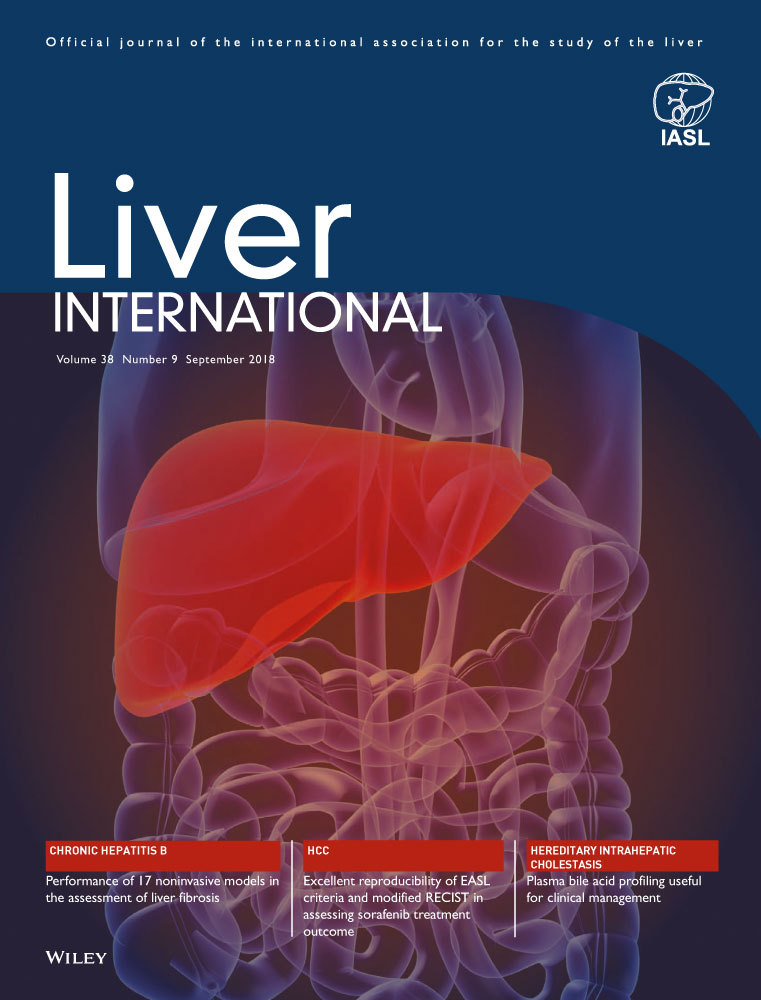Dose-dependent impact of proton pump inhibitors on the clinical course of spontaneous bacterial peritonitis
Funding information
TLT and this study were supported by the ‘KlinStrucMed’ Programme funded by the Else Kröner-Fresenius Foundation.
Cornberg and Maasoumy equally contributed to this study.
Abstract
Background & Aims
Spontaneous bacterial peritonitis is a severe complication in patients with cirrhosis leading to acute kidney injury, hepatic encephalopathy and a high mortality. In this study, we aimed to investigate the impact of proton pump inhibitors and the potential relevance of the taken dosage on the incidence and clinical course of spontaneous bacterial peritonitis.
Methods
Overall, 613 consecutive patients with decompensated cirrhosis were included. All patients were carefully evaluated for proton pump inhibitors intake including the applied dosage and were further followed up for spontaneous bacterial peritonitis development as well as for the incidence of clinical complications like hepatic encephalopathy, acute kidney injury and mortality.
Results
Cumulative spontaneous bacterial peritonitis incidence did neither differ between the proton pump inhibitors and the no-proton pump inhibitors group nor between those taking the high (>40 mg/d) and the low (10-40 mg/d) proton pump inhibitors’ dose. However, proton pump inhibitors’ intake was associated with an impaired clinical course of spontaneous bacterial peritonitis reflected by a higher likelihood for acute kidney injury (71% vs 43%; P = .002), severe hepatic encephalopathy (15% vs 0%; P = .04) and an increased mortality (24% vs 0%; P = .008) within 28 days after spontaneous bacterial peritonitis diagnosis. In particular, patients with proton pump inhibitors dosages >40 mg/d had an increased short-term risk for acute kidney injury (adjusted hazard ratio: 1.86; P = .009) and mortality (adjusted hazard ratio: 2.05; P = .02). In contrast, there was no effect of proton pump inhibitors on acute kidney injury, hepatic encephalopathy and mortality in patients without spontaneous bacterial peritonitis irrespective of the applied proton pump inhibitors dosage.
Conclusions
High dosages of proton pump inhibitors are associated with an adverse outcome in patients with spontaneous bacterial peritonitis. Thus, indication for high-dosage proton pump inhibitors therapy should be evaluated carefully in these patients.
CONFLICT OF INTEREST
The authors do not have any disclosures to report.




